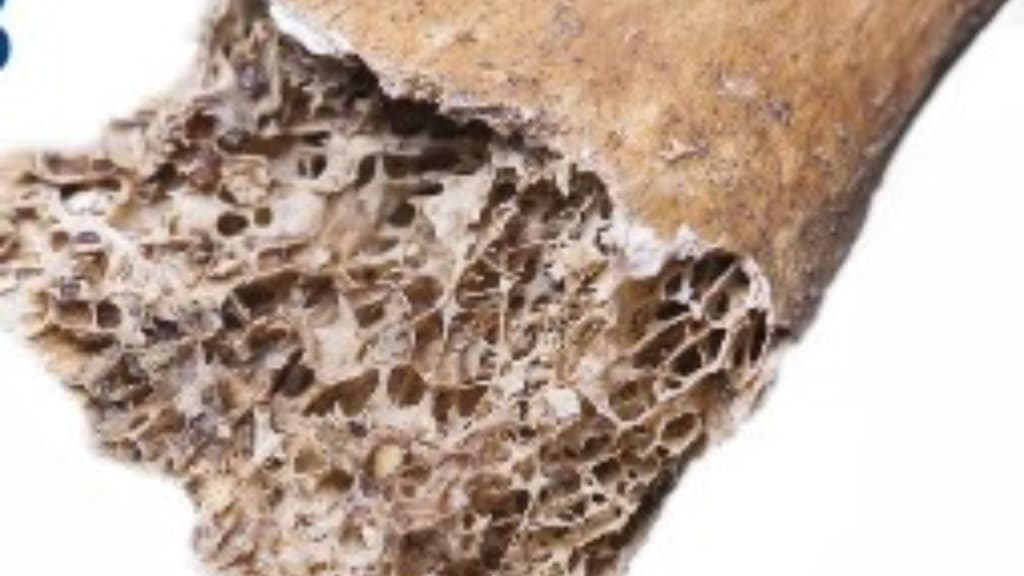"Preserving Skeletal Integrity
A Guide to Avoiding Bone-Dissolving Foods for Senior Bone Health"

As we age, the health of our bones becomes a top priority, especially for seniors who want to maintain an active and independent lifestyle. Proper nutrition plays a pivotal role in bone health, as certain foods can either promote bone strength or, conversely, weaken bones. In this comprehensive article, we will delve into bone-dissolving foods that seniors must avoid to protect their skeletal integrity and overall well-being. Understanding these dietary considerations can significantly impact seniors' long-term health and quality of life.
Carbonated Beverages
Carbonated beverages, including sodas and fizzy drinks, are popular and easily accessible refreshments for people of all ages. However, seniors should be cautious about consuming these drinks excessively. The primary concern lies in the presence of phosphoric acid, commonly used as a flavor enhancer and preservative in these beverages. Phosphoric acid has been linked to calcium leaching from bones over time, reducing bone density and increasing the risk of fractures. To maintain strong bones, seniors should limit their intake of carbonated beverages and opt for healthier alternatives like water or calcium-fortified drinks.
Salty Snacks
While the occasional salty snack may not pose a significant threat, seniors must be mindful of excessive sodium intake. High sodium levels in the bloodstream can lead to calcium loss in the urine, which weakens bones and potentially contributes to osteoporosis, a condition characterized by brittle and fragile bones. Common salty snacks like chips, pretzels, and salted nuts should be consumed in moderation. To curb salty cravings, seniors can explore alternative, low-sodium snacks or choose fresh fruits and vegetables as healthier options.
Caffeinated Drinks
Coffee and other caffeinated beverages are beloved by many, and seniors are no exception. However, excessive caffeine intake can interfere with calcium absorption in the body. When consumed in large quantities, caffeine may lead to a slight reduction in bone density, increasing the risk of fractures. To strike a balance, seniors should aim for moderate caffeine consumption and ensure adequate calcium intake through calcium-rich foods and supplements, if necessary.
Alcohol
Alcohol consumption has been a social norm for generations, but seniors need to be cautious about its impact on bone health. Chronic heavy drinking can lead to decreased bone formation and increased risk of osteoporosis. Alcohol can interfere with the body's ability to absorb essential nutrients, including calcium and vitamin D, which are crucial for bone health. Seniors should limit alcohol intake or consider alcohol-free periods to protect their bone density and overall health.
High Sugar Foods
Seniors should pay attention to their sugar intake, as excessive sugar consumption can disrupt the body's calcium balance, leading to calcium depletion from bones. High-sugar diets have been associated with increased inflammation, which further affects bone health negatively. Seniors must be cautious of sugary snacks, desserts, and sweetened beverages. Instead, they should opt for whole fruits, which provide natural sweetness along with essential vitamins and minerals.
Conclusion
Preserving bone health is paramount for seniors to lead a fulfilling and active life. By avoiding bone-dissolving foods like carbonated beverages, salty snacks, caffeine, alcohol, and high-sugar foods, seniors can take proactive steps to protect their skeletal integrity. In turn, they reduce the risk of fractures and osteoporosis, promoting overall well-being and longevity.
A well-balanced diet rich in calcium, vitamin D, magnesium, and other essential nutrients is key to bolstering bone health. Seniors should consider incorporating dairy products, leafy greens, fortified cereals, nuts, and seeds into their diet to support bone density. Furthermore, regular weight-bearing exercises and physical activity can complement a bone-healthy lifestyle.
It is essential for seniors to be proactive about their health and seek guidance from healthcare professionals or registered dietitians. These experts can offer personalized recommendations and nutritional strategies that cater to individual needs, ensuring seniors enjoy the best possible bone health throughout their golden years. With proper dietary choices and a commitment to a bone-friendly lifestyle, seniors can confidently embrace an active and fulfilling life well into their golden years.
About the Creator
Ivonne Manning
I'm Ivonne, the creator of "Millionaire Blog Post." I empower others with a millionaire mindset through valuable insights and affiliate links that connect readers to valuable resources.
Enjoyed the story? Support the Creator.
Subscribe for free to receive all their stories in your feed. You could also pledge your support or give them a one-off tip, letting them know you appreciate their work.






Comments
There are no comments for this story
Be the first to respond and start the conversation.